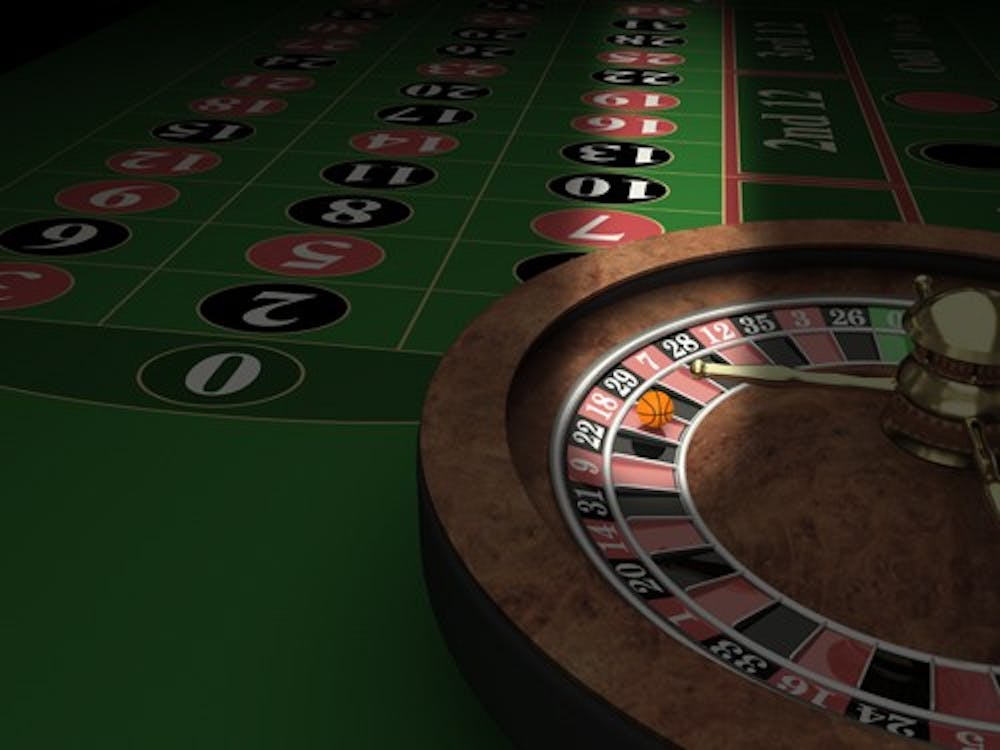Sports gambling: Breaking the bracket and the bank
 To a gambling addict, the first filled-out bracket is just as detrimental as an alcoholic’s first drink.
To a gambling addict, the first filled-out bracket is just as detrimental as an alcoholic’s first drink.
Every March, college basketball fans across the nation fill out their "perfect" brackets with the intention of yielding a big pay-day. Students are starting an activity that some will not be able to maintain control of later down the road.
Warren Buffett’s billion-dollar perfect bracket challenge is the tip of the iceberg in a deep and illegal world of sports gambling.
Sports gambling, legal only in Nevada, can be addictive and leads to reckless behavior, and it can start with something as simple as filling out a bracket.
“The bracket does initiate somebody into a behavior that is very similar to gambling,” said Tim Otteman, professor of recreation, parks & leisure services at CMU. “Nobody becomes a sports gambling addict before they fill out their first bracket.”
With his experience and expertise on sports gambling, both legal and illegal, Otteman has produced his dissertation entitled: Gambling With Their Lives: College Students and Sports Gambling. In it he details the lives of 14 college students who were deeply involved in the illegal enterprise.
In his time following gambling in sports, he has acquired information that some would consider startling.
“College-age students are two to four times more likely to become pathological gamblers than the adult population,” Otteman said. “It goes in stages – you go from filling a bracket out, to betting on multiple games, to betting on multiple sports."
Former athletes who miss the game and are still looking for competition have found an outlet in gambling on their former sport as well.
“It gives (former athletes) a competitive outlet even though they are no longer playing," Otteman said. "Their ability to bet on a sport is based on their perceived knowledge of the sport they used to play.”
Otteman said students are most susceptible to relentlessly pursue an unlikely, but, large profit. Filling out a bracket or making a harmless bet with friends can trigger a person to begin a downward spiral with out-of-control gambling.
Although a select few need the incentive of the dollar sign to place their bet, there are still college students who prefer not to place any dollar amount on the sports they watch. For them, the enjoyment comes from relaxing and enjoying an event with friends and family.
“I just think (betting) sort of takes the fun out of it for me,” said senior Gus Hendrickson, a junior finance major. “The pure competition of the sport and the banter that you have with your friends is fun enough for me and placing bets tarnishes sports in my opinion.”
Freshman forensic sciences major, Robert Ainsworth, said he chooses not to place any money on sporting events. He filled out a bracket at the beginning of the March Madness hysteria to play along with his friends, but did not participate in Buffett's one billion dollar challenge.
However, Ainsworth understands why college students seem to hop onto each new betting-oriented contest.
"A lot of people who don't have a lot of money see opportunities like this as a chance to make more than what they have," Ainsworth said. "Even with the small odds, I think kids will always try as long as there is the possibility of winning big."
While many are able to resist the temptation and not fall down the ‘slippery slope,’ as Otteman calls it, there are still plenty of university students who cannot. Gambling addiction affects people negatively, just as addiction to drugs or alcohol does.
“I see plenty of warning signs; You see people gathering a lot of information and surfing the internet, compiling stats for their bet,” Otteman said. “They sever a lot of personal relationships in the process.”
Weighing the odds
In January, a Business Insider article written by Andy Kiersz featuring DePaul University math professor, Jeff Bergen, said the odds of filling out a perfect bracket are miniscule. With a total of 63 games played in the tournament, one essentially has to pick 63 winners and with two teams playing, Bergen calculated the chances as two raised to the 63rd power.
This yields him the overall odds for picking a perfect bracket at an astronomical one in 9.2 quintillion.
Even taking these odds into consideration, this situation would only be true if it is assumed that each game in the tournament has an even 50-50 chance to it. This is what Business Insider views as a virtual coin flip but it can also be misleading to someone filling out a bracket due to the random nature of the games the tournament produces.
Saying there is a 50-50 chance, according to Business Insider, is saying that each team in the tournament has an equal shot at winning.
With March Madness being just that, "madness," there is no conceivable way that every team has an equal chance and therefore would make the initial estimate, in the quintillions, as close to an individual's chances at defying the odds in Buffet's contest as possible.







